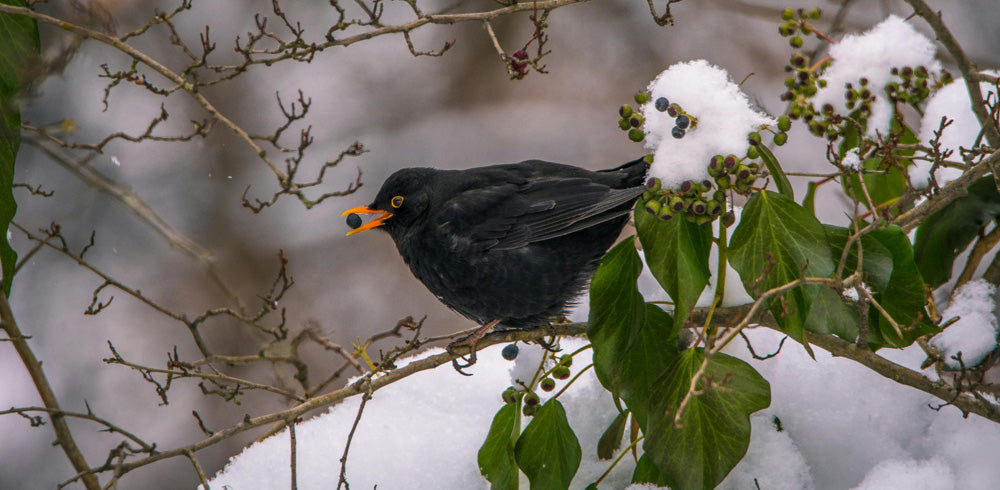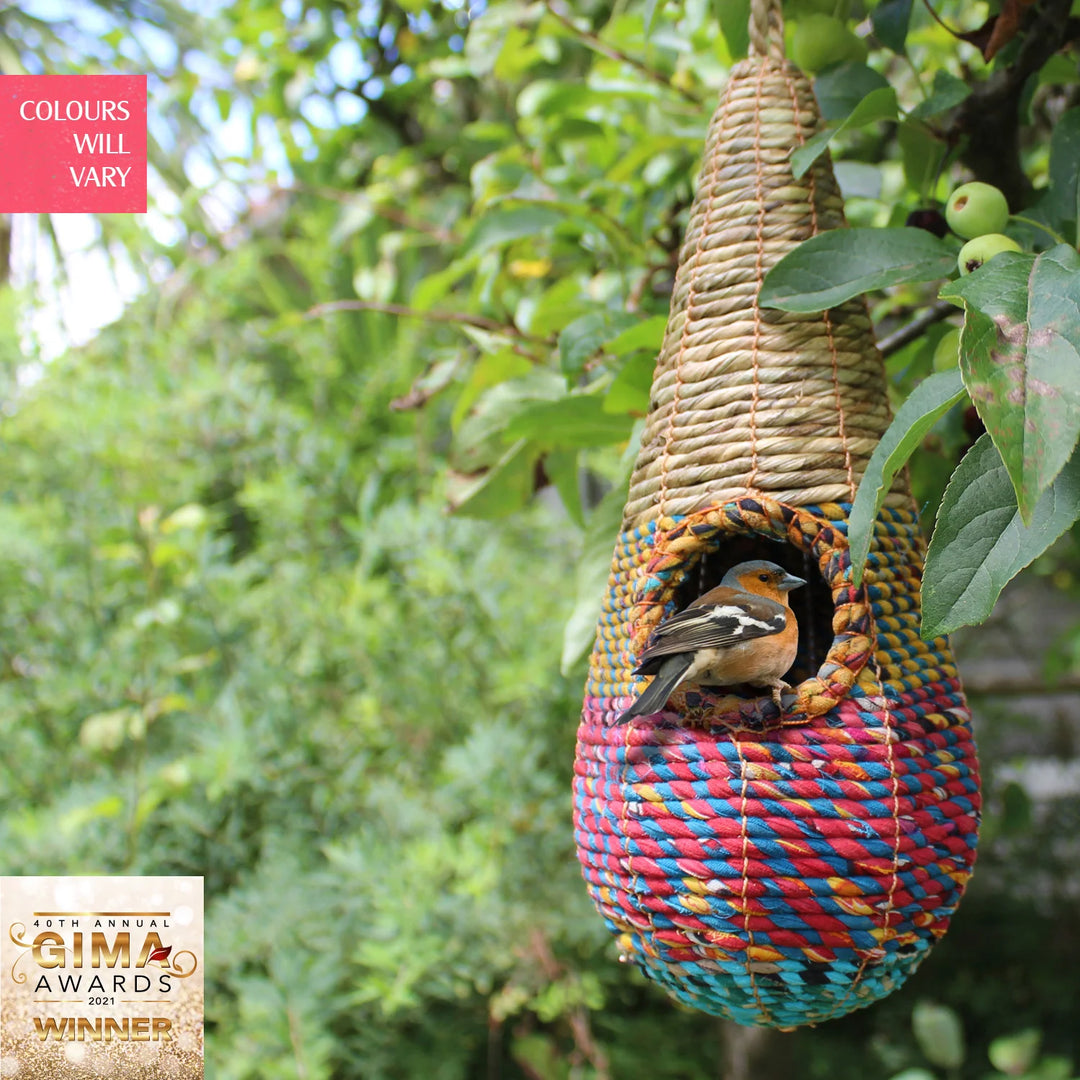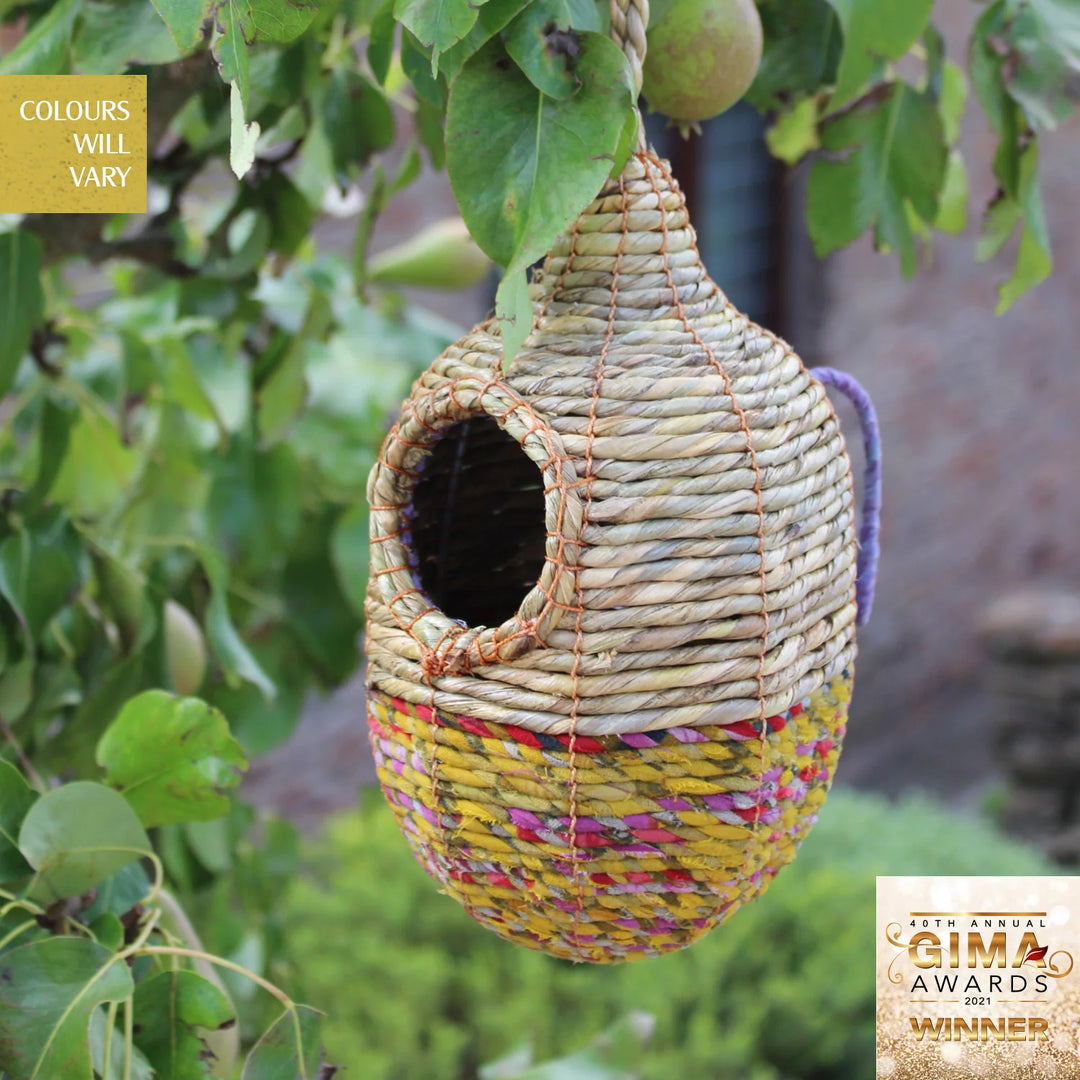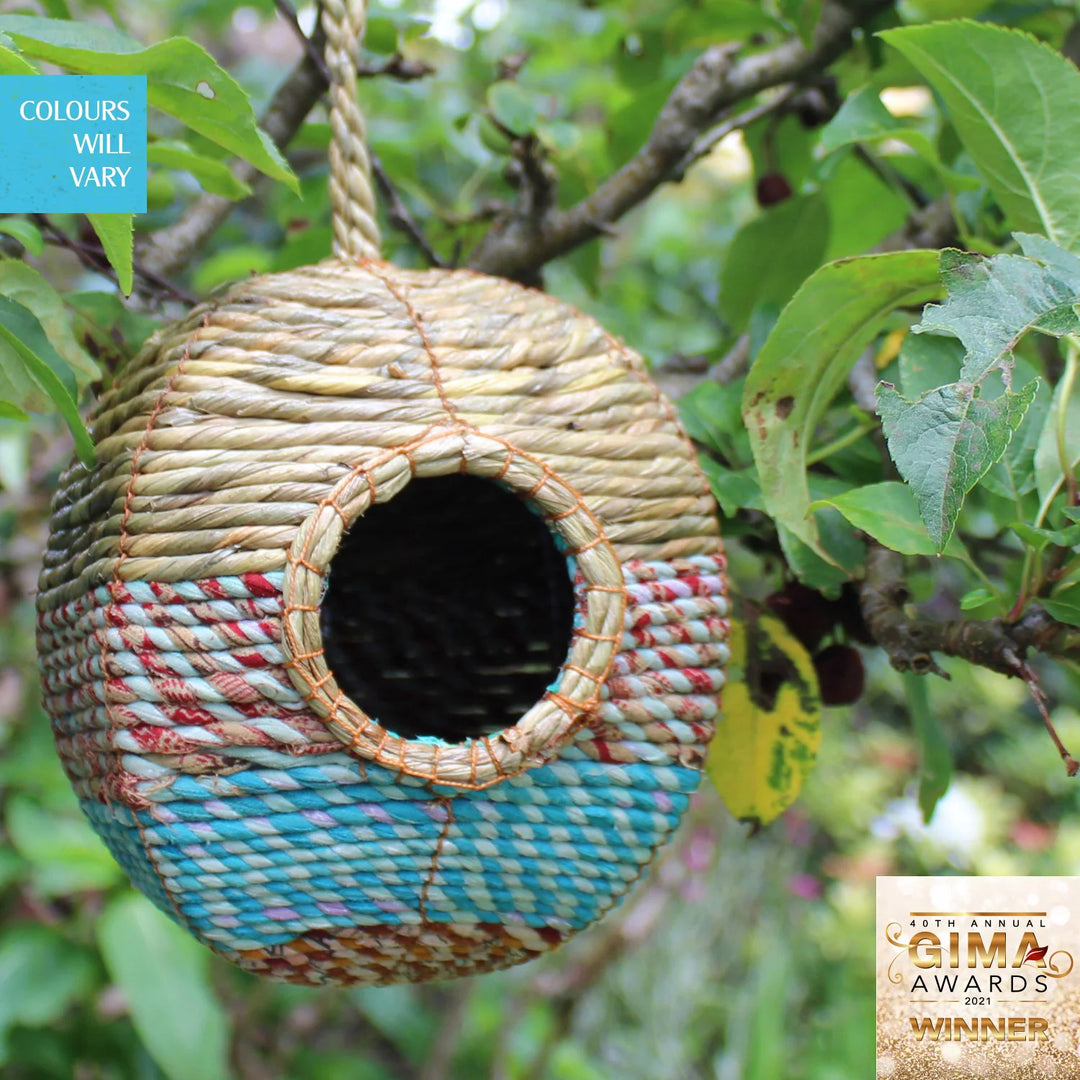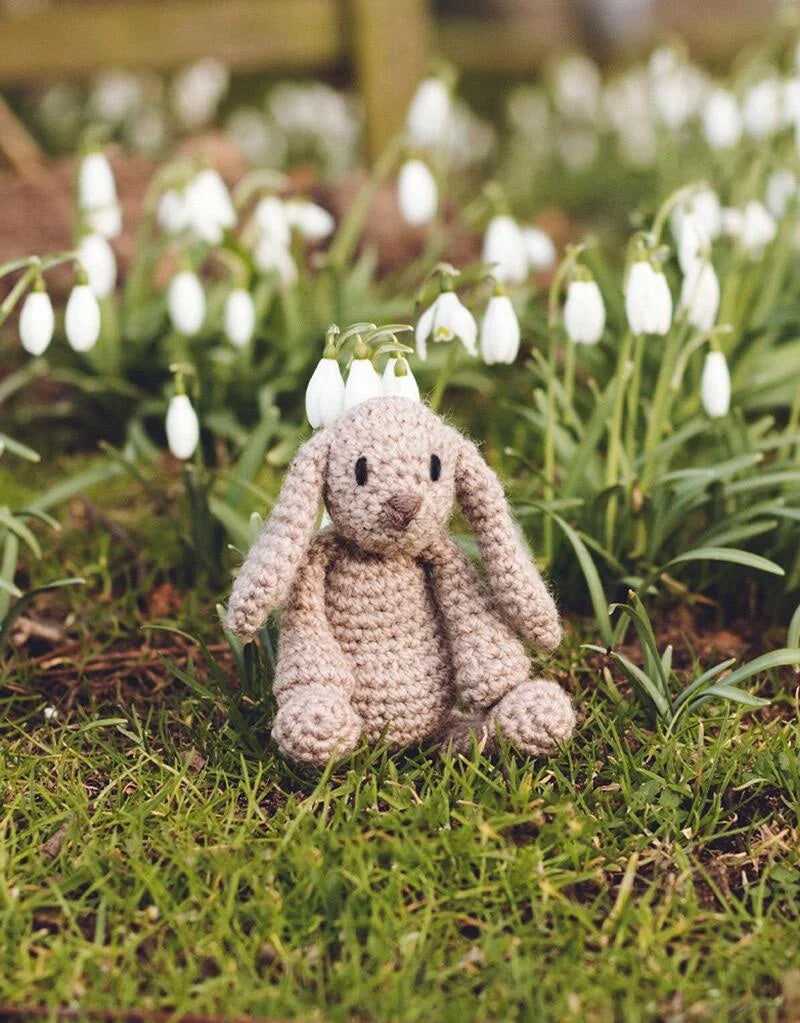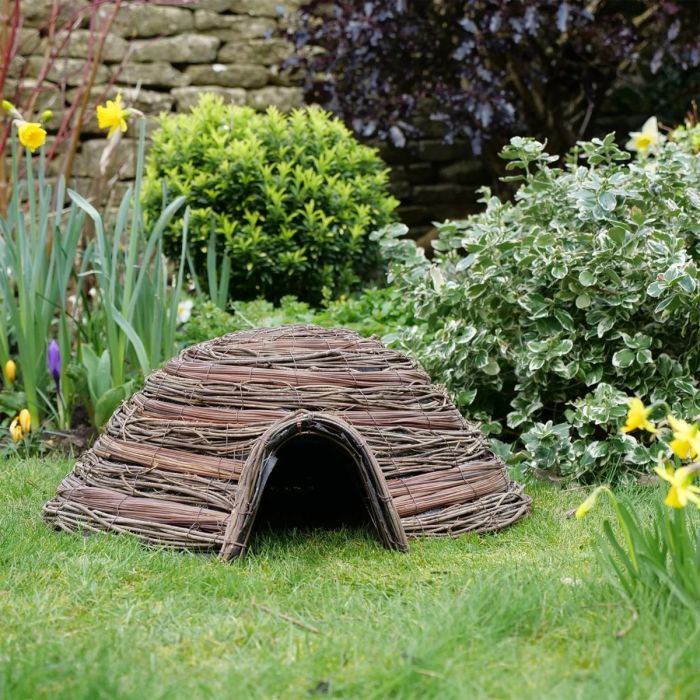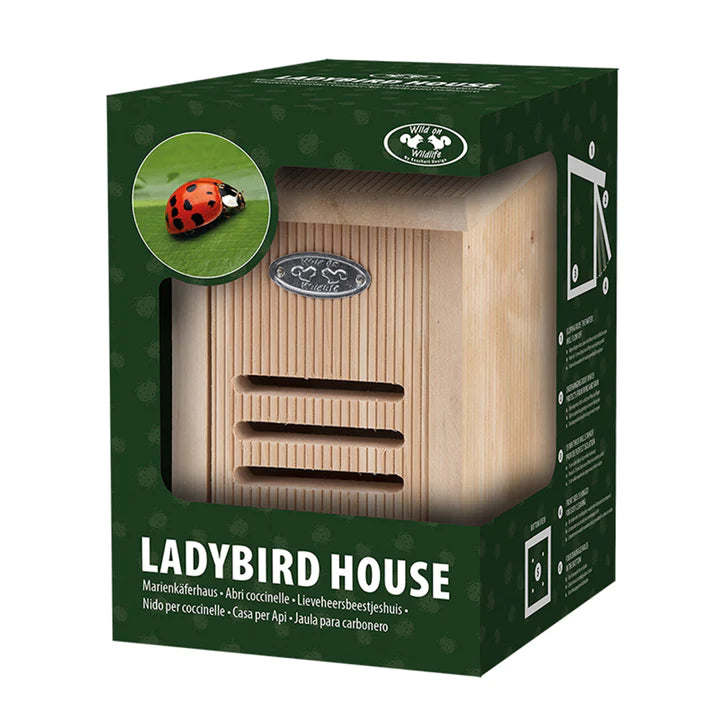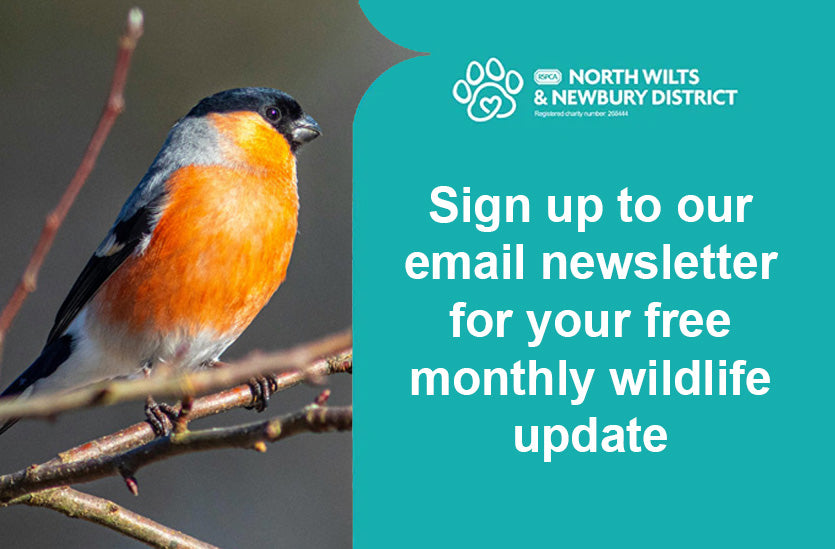Blackbird
Blackbirds in the UK are a common sight in gardens, parks, and woodlands. These wild birds are known for their distinctive plumage and beautiful songs. However, despite their prevalence, blackbirds are actually considered to be an endangered species in the UK and are protected under the Wildlife and Countryside Act.
Blackbirds are known for their distinctive black plumage, which is offset by a bright yellow beak and eye ring. However, not all blackbirds are actually black - some individuals have dark brown feathers, while others have a more mottled appearance. This variation in colour is due to differences in diet and habitat.
Blackbirds are migratory birds, with many individuals travelling to the UK from Europe during the breeding season. They can be found in a variety of habitats, including woodlands, hedgerows, and gardens. During the breeding season, blackbirds build nests out of twigs, leaves, and grass, which they line with mud and feathers.
Blackbirds have a varied diet, feeding on a wide range of foods including insects, worms, berries, and seeds. They are known for their distinctive feeding behaviour, which involves hopping along the ground and using their beaks to probe for food. Blackbirds are also known to feed on fruit, particularly in the autumn when berries are abundant.
One of the most striking features of blackbirds is their feathers, which are glossy and iridescent in the sunlight. These feathers are used for insulation and protection, helping to keep the birds warm and dry in all weather conditions. Blackbirds also use their feathers for display purposes, puffing them up to attract mates during the breeding season.
Blackbirds are known for their beautiful songs, which are a familiar sound in gardens and woodlands throughout the UK. These songs are used by males to attract mates and establish territories. Blackbirds are also known for their alarm calls, which warn other birds of potential threats.
Overall, blackbirds are a fascinating and important part of the UK’s wildlife. Despite their endangered status, these wild birds continue to thrive in a variety of habitats, thanks to conservation efforts and legal protection. By learning more about blackbirds and their behaviour, we can help to ensure that they remain a common sight in the UK for generations to come.
Blackbirds are known for their distinctive black plumage, which is offset by a bright yellow beak and eye ring. However, not all blackbirds are actually black - some individuals have dark brown feathers, while others have a more mottled appearance. This variation in colour is due to differences in diet and habitat.
Blackbirds are migratory birds, with many individuals travelling to the UK from Europe during the breeding season. They can be found in a variety of habitats, including woodlands, hedgerows, and gardens. During the breeding season, blackbirds build nests out of twigs, leaves, and grass, which they line with mud and feathers.
Blackbirds have a varied diet, feeding on a wide range of foods including insects, worms, berries, and seeds. They are known for their distinctive feeding behaviour, which involves hopping along the ground and using their beaks to probe for food. Blackbirds are also known to feed on fruit, particularly in the autumn when berries are abundant.
One of the most striking features of blackbirds is their feathers, which are glossy and iridescent in the sunlight. These feathers are used for insulation and protection, helping to keep the birds warm and dry in all weather conditions. Blackbirds also use their feathers for display purposes, puffing them up to attract mates during the breeding season.
Blackbirds are known for their beautiful songs, which are a familiar sound in gardens and woodlands throughout the UK. These songs are used by males to attract mates and establish territories. Blackbirds are also known for their alarm calls, which warn other birds of potential threats.
Overall, blackbirds are a fascinating and important part of the UK’s wildlife. Despite their endangered status, these wild birds continue to thrive in a variety of habitats, thanks to conservation efforts and legal protection. By learning more about blackbirds and their behaviour, we can help to ensure that they remain a common sight in the UK for generations to come.


